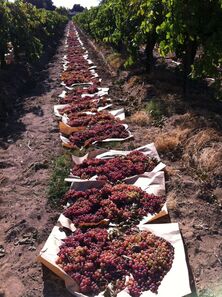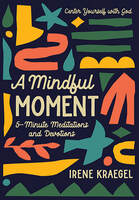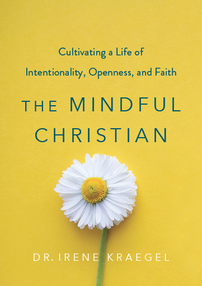 Who does your food connect you to? This is one of the questions we consider when engaging in the Raisin Meditation, a classic practice in the Mindfulness Based Stress Reduction (MBSR) tradition. Consider the beginning of a raisin – a small seed planted in the ground that grows into a vine, a tiny grape, a big grape. It’s removed from the vine and dried (often in the sun on the ground) until it shrivels up, then it’s packaged, transported, shelved, and sold. By the time that raisin is in your hand, it has seen rain, sunshine, and multiple moves. It has been brought to you by more people than can be counted – farmers, processors, drivers, grocery store workers, etc. It is a gift provided to you by nature and by a whole host of people, including the ancient people of the Middle East and Mediterranean regions who first discovered the raisin as early as 2000 B.C. And then when you experience that raisin in your hand, there is equal complexity. Visual stimuli of light and dark, ridges and hollows, asymmetries, variations in color. Tactile stimuli that shift continuously in response to the warmth of your hand that holds the raisin. Auditory stimuli when you hold it by your ear and roll it between your thumb and forefinger (did you know raisins can make a sound?). Smell that stimulates a reaction in your mouth, taste that changes moment to moment (sometimes exploding with surprises) once you place it on your tongue and take that first mindful bite. And your whole body knows how to process that raisin, how to get it into your mouth, move it around with your tongue, mash it with your teeth, move it down your throat into your stomach. Once you’ve eaten the raisin, it becomes a part of you. With careful attention to the process, you’ve no doubt observed a plethora of thoughts and feelings along the way of eating that one raisin, perhaps even some strong reactions. You may have had urges to swallow, memories of past raisins you’ve eaten, plans for what to do with other raisins in the future. Maybe you’ve experienced delight or craving or disgust. But whether your thoughts and feelings in reaction to the raisin have been pleasant or unpleasant, it has added nourishment and health to your body. The iron, potassium, fiber, and other good stuff God put in there has benefited you. You have been changed by your experience of the raisin. We can’t possibly pay this much attention to every bite – it would take too long and get too overwhelming! (AJ Jacobs, for example, speaks about the discovery that hundreds of people are involved in bringing him his morning cup of coffee each day.) But pausing to notice our food in this counter-cultural way can be transformational, waking us up to depths of goodness in this gift from God that is food. God made food for our benefit. It nourishes our bodies, keeps us alive, and brings us joy. It is a gift, connecting us to this big beautiful planet and to one another in ways we can’t even keep track of. Food is not just for breaking down into calories or controlling or judging. It is a good thing, and it is part of the good life. We benefit from paying mindful attention to the food we eat. If you’re interested in trying out a 10-minute Raisin Meditation from a Christian perspective, you can find a guide on my YouTube channel, The Mindful Christian. Bon appetit!
0 Comments
 I’ve blogged about mindful parenting before, a long post with lots of practical ways I aim to apply mindfulness as a parent. But this time around, I just want to emphasize one thing: presence. If you are a parent, maybe you want your child to be different – to change sleeping habits, study harder, be more polite, be more helpful, comply more quickly, be more affectionate, regulate emotions more, demonstrate more gratitude, spend less time on the screen, etc. You can think about this as pushing and pulling on kids, resisting who they are in the moment in your desire for a different reality. This makes it hard to be fully present to who they are and where they are in their growth journey. Being present means I am not pushing my child to be someone different. Instead, I am joining them in the moment with curiosity about what God is up to in this moment as they (along with me) grow and change. I join with them in goals for a healthy and happy future, but I am present with them right now as the only place that growth and connection can happen – in the present moment. This usually requires us to slow down and look at our children, tuning in to their experience with compassion and patience. When applied interpersonally, mindfulness asks us to give up our own hurried and controlling agendas with one another – to listen deeply, speak truthfully, and demonstrate compassion for both ourselves and others. So mindful parenting brings this to the parent-child interaction – slowing down, giving up our rigid agendas, listening deeply, speaking truthfully, and showing compassion. And it brings a compassionate presence to our own experience in the process, because parenting can be hard. I once worked with a family in therapy who was experiencing behavior problems with their son. It quickly became apparent that the behavior issues were related to a significant difference between the boy and his parents – the parents loved soccer and saw full engagement with the sport as the only way to flourish. The boy had no interest in soccer – he loved theater and reading and creative pursuits. Through therapy, the parents learned to notice the pressure they were putting on him unnecessarily to be someone he was not. They learned to slow down, see their son’s interests, and be present to those. As they became more present to who he was, he no longer had the need to push back on their resistance – his behavior settled, and things became peaceful in their household. But it was ongoing work for his parents to remain present to him and his interests rather than mindlessly pushing their own agenda. Being fully present with our children is a deep and lasting gift, and it reflects the way God is ever-present with us in our own growth journeys. |
Author
I am Irene Kraegel. I am licensed as a clinical psychologist and teach mindfulness on a faith-based university campus. I practice mindfulness because it opens me up to God (a.k.a. brings joy). I am writing here in hopes of sharing some of my experiences and thoughts related to the practice of mindfulness in the life of a Christian. Thanks for reading! Books
Blog archives
December 2023
|


